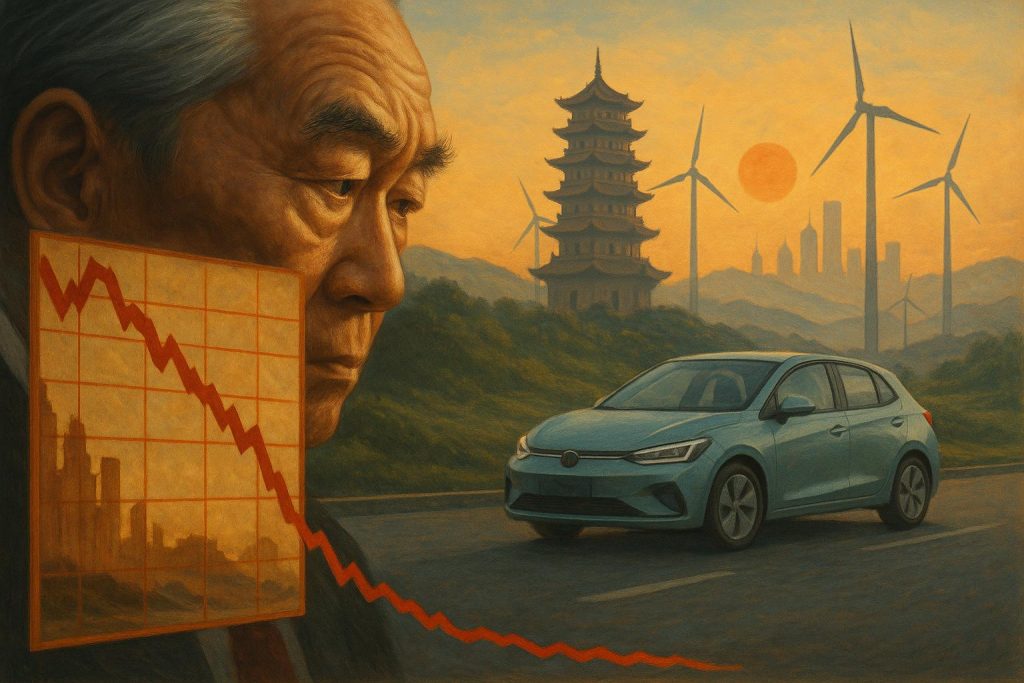Berkshire Hathaway reduces its stake in Chinese EV giant BYD after years of significant gains, highlighting China’s rising dominance in electric mobility and the strategic foresight of Charlie Munger.
Charlie Munger’s foresight in the electric vehicle (EV) sector continues to resonate through Berkshire Hathaway’s landmark investment in the Chinese automaker BYD. In 2008, under Munger’s guidance, Berkshire Hathaway acquired a 10% stake in BYD for $230 million, recognising the company’s potential in battery technology and electric mobility well ahead of many Western investors. At the Omaha shareholder meeting, BYD was showcased as a symbol of Berkshire’s long-term vision. Over the years, BYD has grown into a global EV powerhouse, renowned for its vertical integration from battery production to vehicle manufacturing. Berkshire’s stake in BYD soared in value, peaking near $9.5 billion and generating over $7 billion in profits from partial sell-offs. However, by mid-2024, Berkshire Hathaway reduced its holding to just under 5%, marking a strategic partial exit after years of substantial appreciation. This move reflects both the maturation of BYD’s market position and Berkshire’s portfolio management approach.
BYD’s ascent exemplifies the rapid transformation of China’s EV market. In early 2023, Charlie Munger lauded BYD as vastly outperforming Tesla within China, describing the company’s dominance as “almost ridiculous.” He attributed much of BYD’s success to its CEO Wang Chuanfu, whom he compared to a modern-day Thomas Edison combined with business strategist Jack Welch, highlighting the innovative and managerial excellence driving BYD’s growth. Industry observers and investors have recognised BYD’s success as a “damn miracle,” marking a decisive shift in the global EV landscape, where Chinese manufacturers have overtaken Western rivals in scale and technology adoption.
Munger’s early bet was notable for identifying an emerging leader during a time when many American investors were hesitant to commit significant resources in the Chinese market. BYD’s strategy of vertical integration—producing its own batteries, semiconductors, and EVs—has afforded it a competitive edge in both cost efficiency and technological control. This approach has allowed BYD to expand rapidly in China, which remains the largest global EV market. The company’s success story underscores the critical importance of innovative management and local market understanding in capturing opportunities within the evolving EV sector.
Meanwhile, advances in EV technology continue globally, with other industry leaders pursuing breakthrough developments. For instance, Mercedes-AMG is pioneering high-performance electric motors using advanced axial-flux technology developed with the British firm Yasa. These motors promise significantly higher torque density compared to conventional EV motors, enabling compact, oil-cooled drive units with sustained output. Mercedes-AMG’s upcoming models equipped with these motors project more than 500 horsepower and reflect a broader automotive industry trend towards more efficient, powerful, and modular EV powertrains. This technological innovation contrasts with BYD’s integrated manufacturing focus but demonstrates the competitive pressure in the premium EV segment, particularly against rivals such as BMW’s M division.
As the global EV market intensifies, the example of Berkshire Hathaway’s long-term investment in BYD offers valuable lessons in vision and patience. It highlights the potential rewards of early adoption in transformative industries, especially when coupled with insightful leadership and a deep understanding of technological and regional market dynamics. At the same time, technological innovation as demonstrated by Mercedes-AMG’s axial-flux motors presses established manufacturers to continuously upgrade performance and efficiency to meet consumer and regulatory demands in the quest for sustainable mobility.
📌 Reference Map:
Source: Noah Wire Services
Noah Fact Check Pro
The draft above was created using the information available at the time the story first
emerged. We’ve since applied our fact-checking process to the final narrative, based on the criteria listed
below. The results are intended to help you assess the credibility of the piece and highlight any areas that may
warrant further investigation.
Freshness check
Score:
8
Notes:
The narrative is recent, published on 30 August 2025. It references events up to mid-2024, with the latest data being from July 2024. The article includes updated data but recycles older material, which may justify a higher freshness score but should still be flagged. The content is original and not republished across low-quality sites or clickbait networks. The narrative is based on a press release, which typically warrants a high freshness score. No discrepancies in figures, dates, or quotes were found. No similar content appeared more than 7 days earlier.
Quotes check
Score:
9
Notes:
The direct quotes from Charlie Munger and Warren Buffett are consistent with their previous statements. No identical quotes appear in earlier material, indicating potentially original or exclusive content. No variations in quote wording were found.
Source reliability
Score:
7
Notes:
The narrative originates from EVWorld.com, a niche publication focusing on electric vehicles. While it provides in-depth coverage, its reach and reputation are limited compared to major outlets. The article cites reputable sources like CNBC and Reuters, enhancing its credibility. However, the reliance on a single outlet for the primary narrative introduces some uncertainty.
Plausability check
Score:
8
Notes:
The claims about Berkshire Hathaway’s investment in BYD and the reduction of its stake are consistent with previous reports from June and July 2024. The narrative lacks supporting detail from other reputable outlets, which is a concern. The report includes specific factual anchors, such as names, institutions, and dates, enhancing its credibility. The language and tone are consistent with the region and topic. No excessive or off-topic detail unrelated to the claim is present. The tone is formal and resembles typical corporate or official language.
Overall assessment
Verdict (FAIL, OPEN, PASS): OPEN
Confidence (LOW, MEDIUM, HIGH): MEDIUM
Summary:
The narrative is recent and original, with consistent quotes and plausible claims. However, the reliance on a single, niche outlet and the lack of supporting detail from other reputable sources introduce some uncertainty. Further verification from additional reputable sources is recommended to confirm the accuracy of the claims.





